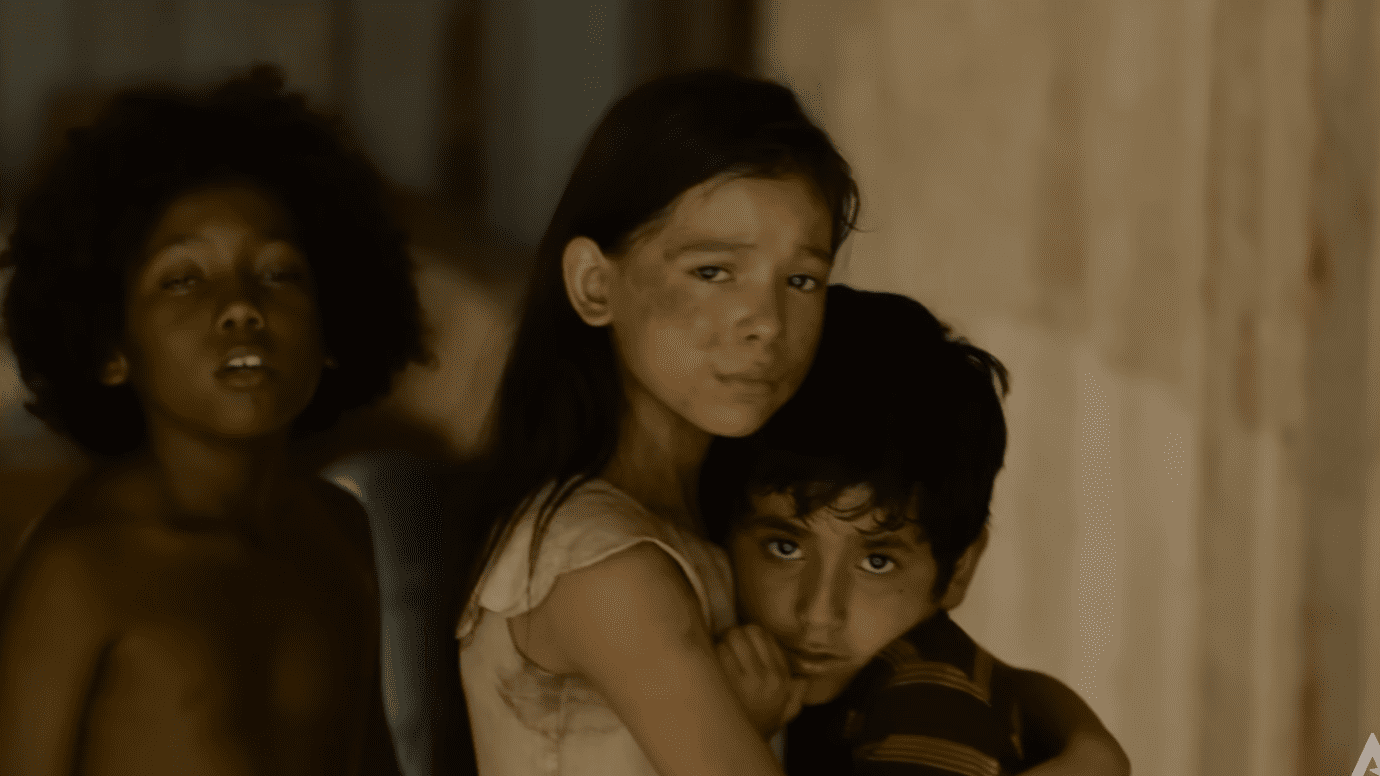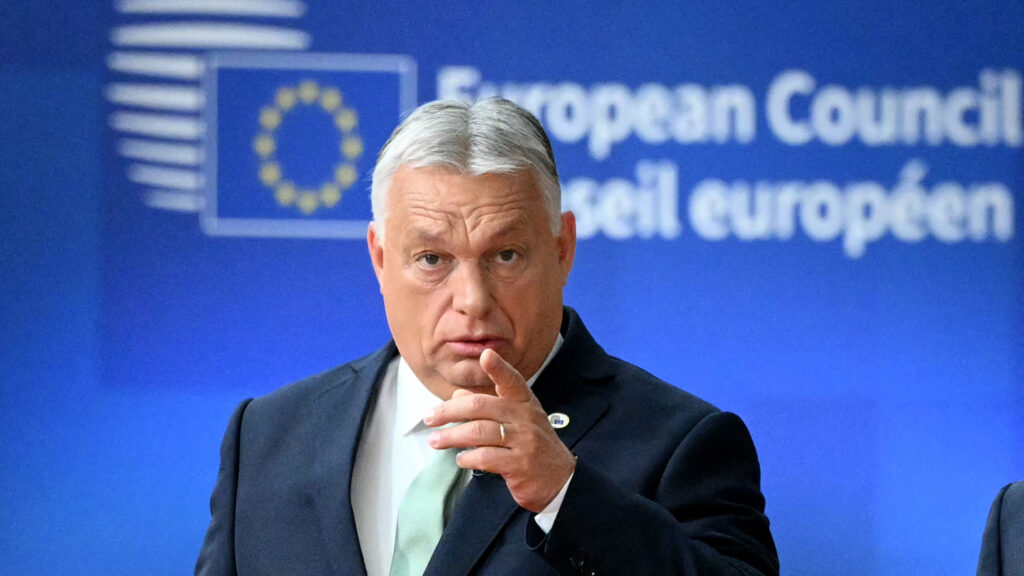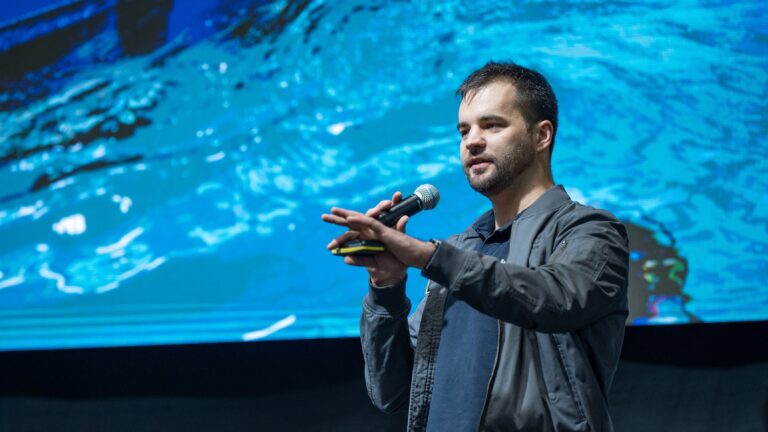Sound of Freedom is a highly successful and at the same time ‘controversial’ film, released by the same Angel Studios that distributes Sound of Hope, the movie recently reviewed by our Diaspora contributor. The following review by the same author is a short version of a post published in Hungarian on the Facebook page of the Szent István Intézet (Saint Stephen Institute) last summer.
Let me start with a brief summary of the movie and its plot: Tim Ballard, played by actor Jim Caviezel (The Count of Monte Cristo, 2002; The Passion of the Christ, 2004), has been fighting pedophiles for years as an undercover agent, during which he was forced to watch thousands of pedophile tapes while gathering evidence. At one point one of his colleagues asks him about the fate of the children involved, and his reply is that they don’t have to deal with the children, they have to deal with the pedophiles. Yet, one of his cases touches him deeply: pretending that he is a pedophile himself, he seemingly helps a pedophile he has previously arrested to get freed, who promises him a seven-and-a-half-year-old boy as a reward. Ballard later finds and frees the child and, at his request, starts looking for the child’s sister, who was also kidnapped. His personal commitment cannot be stopped either by borders or by his superior, who for a while covers for his subordinate’s foreign ventures in South America (before 2006, U.S. agents were not allowed to investigate abroad), but ultimately orders him back before a big operation that Ballard has meticulously planned. At that point he decides to continue the operation on his own, as a vigilante, with the moral support of his wife (played by Mira Sorvino) and with the help of a few Colombian colleagues. While searching for the kidnapped sister, collaborating with local authorities, he rescues 54 other minors from slavery in a thrilling operation.
Sound of Freedom | Official Trailer | Angel Studios
Become A Member of The Angel Guild And Get Early Access: https://www.angel.com/guild/join/early-access/sound-of-freedom Disclosure: Sound of Freedom is “testing the waters” to gauge investor interest in an offering under Regulation Crowdfunding. No money or other consideration is being solicited, and if sent, will not be accepted.
The movie thus comes to a happy ending for the family involved (apart from the horrors experienced by the minors), but viewers are not relieved after watching it. Not only because they know that this is a true story, which makes it even more harrowing to follow. By the end of the movie, we also learn (if we were not already aware before) that child sex trafficking is a huge global social issue, and one of the fastest growing businesses (comparable to drug trafficking) affecting millions of children, with millions of abusers and the U.S. authorities not seeming to be truly committed to eradicating it.
In an interview conducted by acclaimed Canadian psychologist Jordan Peterson, Ballard estimates that there are six million children trafficked worldwide, thousands of whom are under five years of age, and about one-third of whom, i.e. approximately two million minors, are also victims of sexual abuse.
The United States in fact is the world’s number one in terms of child rape cases and is the largest market for child slavery.
At the end of the movie, we also learn that there are more people affected by this phenomenon than by colonial slave trade a few hundred years ago.
During the closing credits Caviezel tells us what we can do to help the cause: spread the word about the movie and support the filmmakers, i.e. Ballard’s organization (Operation Underground Railroad, OUR), for example by buying tickets for the movie for those who cannot afford them (which I have done).
A very dark shadow has lingered on my conscience ever since, which will not easily disappear. It is difficult to decide what has affected me most: the fact that a movie based on a true story shows the terrible depths into which humans can descend; or the fact that the mainstream media has attacked the movie claiming it spreads conspiracy theories; or the lack of a strong political will to crack down on these crimes effectively. It is admirable that a father of six devotes his life to saving other people’s children, and is therefore undoubtedly a role model, but how come he is forced to do it as a vigilante, without meaningful support from the most powerful government in the world?
As you can see, as much as I’d have liked to, I cannot write about this movie without mentioning the attitude of the mainstream media to it and the political attacks against it. Fortunately, I saw the movie first and only then did I start reading about it, so at least during those two hours while watching I could concentrate on the story and the characters. But not everyone felt the same way; not everybody was so pinned to their seats as I was: some people were rattling their bags of chips loudly; others were chuckling during the action scenes.
And that’s where I have some criticism: no matter how appealing and fast-paced the storytelling is, Sound of Freedom may be too ‘American’ for a European viewership. I am certainly not referring here to the ‘too dark to be true’ conspiracy theory accusations. What I mean is that there are too many close-ups of the main character; I felt it was somewhat over the top. While he is undoubtedly a talented actor, the frequent close-up shots of his weepy face were a bit ‘too much’. In addition, the computer hippie, the bumbling drunk, or the guitar-playing mob boss seemed to me less credible pedophile types, although I have since learned that pedophiles are ordinary, often educated people (teachers, pastors, doctors, etc.) living among us, about whom no one would think that they are also child abusers.
Also, the action movie atmosphere and scenes are sometimes rather clumsy and thus pose the risk of compromising the credibility of the whole story. I can understand that the creators of the movie wanted to appeal to a broader viewership, since a documentary would probably reach a much narrower audience. At the same time, as far as I understood, the creators’ intention was not just to make a movie, but to raise awareness and seek allies in the fight against child slavery and pedophilia. If so, then multiple action scenes (especially those in the Colombian rainforest) could have been taken a little more seriously.
I’m a bit hesitant about putting forth my last criticism, because it could easily be misunderstood or misinterpreted. I felt that there were no truly shocking scenes included. I don’t mean that actual sexual abuse of children should have been shown to any extent, but perhaps it could have been a bit more effective (if not visually, at least verbally) to emphasize what is actually happening to the children—just to give the audience a better understanding of the staggering depths of cruelty, the actual gravity of the matter. At the same time, when I start thinking of what I would feel if my child had been one of those kidnapped, I come to the conclusion that what the movie allows us to see is maybe more than enough.
Despite the controversies that surround it and its few weaknesses, the reviews of the movie by American viewers have been very positive. Overall, the film is very powerful: there are some very strong scenes, the actors playing the main characters are talented and convincing, and the movie’s greatest strength is undoubtedly that it presents a social problem that exists on a global scale through the personal story of a family. It also seems to have been a wise decision of the filmmakers to present the topic first as an action movie, and then follow it up with a documentary version (the making of which is already in progress).
Ballard shared some important insights about why he embarked on this unique journey and how he manages to continue it in the previously mentioned Peterson interview.
Ballard said he could not do his job without his faith, the support of his wife and the professional help of others, including ongoing psychological supervision.
He sees his work as a God-given mission, in which his wife gives him her full support. In fact, two days before his resignation as a U.S. agent, she said to him: ‘I will not let you risk my salvation by not continuing!’ What an incredibly strong message! How strong a personal faith in God and what a selfless marriage based on deep and infinite trust, the fruit of which is their (at the time) six, by now nine children!
It is also very revealing that several major actors who were approached said no to the lead role. As Caviezel revealed: he had already gone through this dilemma with The Passion of the Christ; to which he then said yes (and so did now) because of his faith in God; and also, because he was already somewhat aware of the risks of child trafficking, having adopted three children from China. The film could only be released after five (!) years, because none of the major Hollywood studios found it interesting enough (at least that was their official reasoning), so ultimately Christian Angel Studios released and distributed it.
Ballard also revealed in the interview that in his opinion this movie is about the depths of human darkness that the average person cannot imagine. In the past, when it came to pedophilia, he thought of teenagers as the victims, as most people still do, but the first videotape of this kind that he saw as an agent involved five- and three-year-old children (!). He has also seen young children physically broken by the abuse on several occasions. He became a private detective in the early 2010s because, although it became possible for U.S. national security services to investigate abroad from 2006 (in fact, those foreign operations opened his eyes), he was often called home by his superiors before completing various undercover missions.
At this time, there is little political will to eradicate pedophilia that it is even possible that Ballard will have to stop his heroic work in the future because laws might be passed that may legalize pedophilia in the U.S. I hope that will never happen in the United States or anywhere in the world. But whatever the political commitment is to end child sexual abuse, one thing is certain: we as individuals can do more. More people should watch movies like this to understand that there are terrible depths of human evil around us, and therefore we must fight against it, each of us in our own way. And if there are enough of us, perhaps we would not only support the few heroes who take up the cause, but also put pressure on politicians and lawmakers to do more. Is this naive? Maybe, but we can still try.







